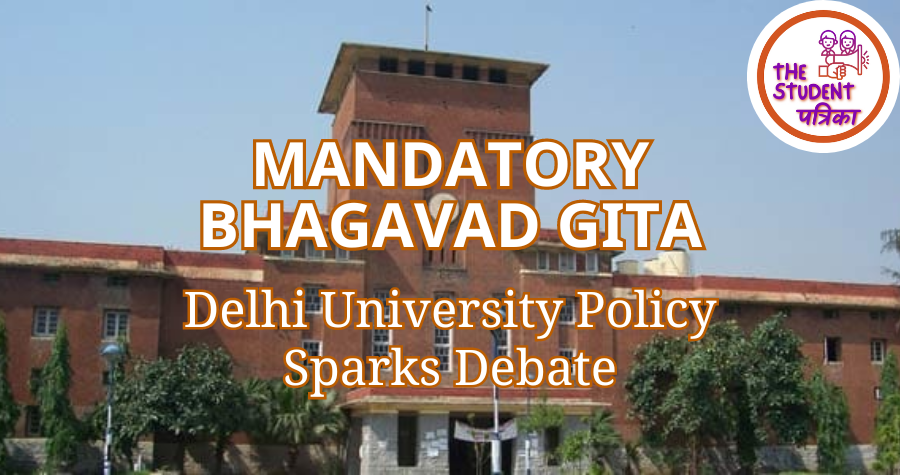
Dharma – a central concept in the Bhagavad Gita – translates to righteousness, duty, and the path one should follow. But can making students follow the Gita's path by mandating its inclusion in a Delhi University course be considered truly righteous? The recent decision by Ramanujan College, a part of Delhi University, to make a certificate-cum-refresher course on the Bhagavad Gita mandatory for its teaching and non-teaching staff has sparked controversy and debate.
On the one hand, proponents of the move argue that the Gita offers timeless wisdom on ethics, life's purpose, and overcoming moral dilemmas. They see it as a valuable guide for navigating the complexities of life, regardless of religious affiliation. Studying the text, they say, would enrich students' understanding of Indian culture and heritage, fostering a sense of national identity. Some view the course as an opportunity for personal and professional development, enhancing critical thinking, decision-making, and communication skills.
But critics have raised concerns. Firstly, mandating a religious text in a secular university raises questions about neutrality and academic freedom. Students, irrespective of their beliefs, should have the right to choose what they learn, not be compelled to study a specific religious text. Secondly, concerns exist that the focus on the Bhagavad Gita excludes other Indian and non-Indian religious and philosophical texts, potentially marginalizing individuals from minority groups or those with different belief systems.
The Debate Continues:
The controversy surrounding the mandatory Bhagavad Gita course at Ramanujan College highlights the complex and sensitive issues surrounding religion, education, and academic freedom in India. While proponents emphasize the potential benefits of the course for promoting Indian values and personal development, opponents raise concerns about religious neutrality, coercion, and inclusivity.
The ongoing debate reflects the challenges of navigating India's diverse religious landscape within a secular educational system. Finding a balance between respecting religious traditions and upholding academic freedom will be crucial in determining the future of such initiatives in educational institutions.
It's important to note that there is no easy answer to this complex issue. Both sides raise valid points, and there is no consensus on the best way forward. Ultimately, the decision of whether or not to make such courses mandatory will likely depend on the specific context and policies of each institution.
What do you think? Should the Bhagavad Gita be mandatory in DU courses? Share your thoughts in the comments below!
(Keywords: Bhagavad Gita in DU course Mandatory religious studies in university Academic freedom and neutrality Secularism and education in India Ramanujan College controversy Ethical concerns of mandatory Gita study Potential for bias and proselytization Alternative options for learning about ethics and values Importance of critical thinking and respect for diverse beliefs Studentpatrika Delhi University Indian education system Hindu scripture Philosophy and ethics Religious freedom Interfaith dialogue)










